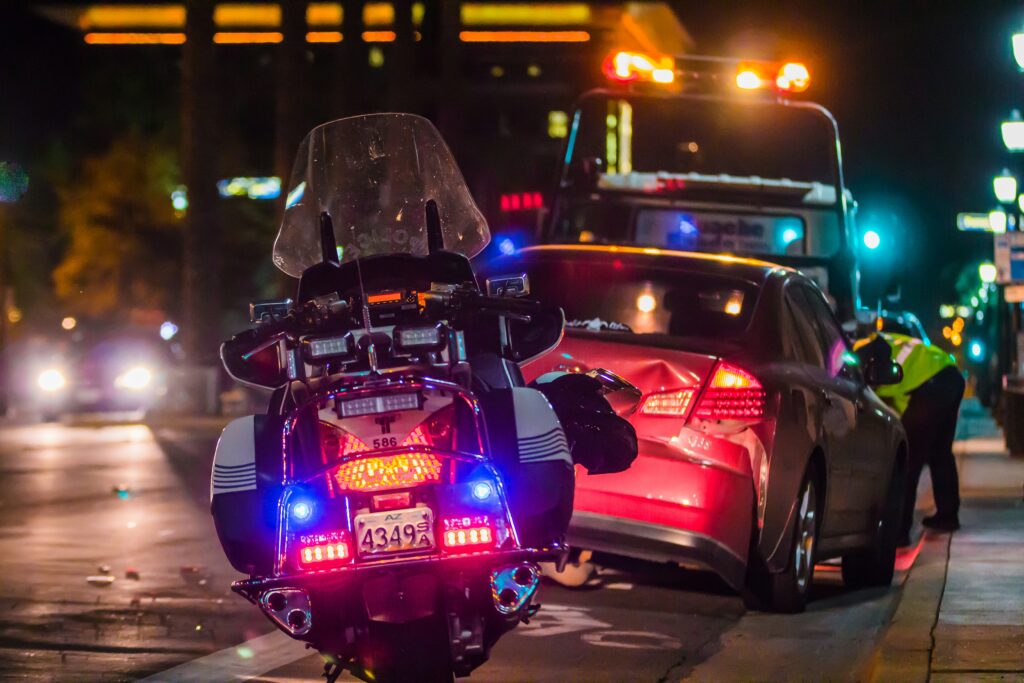5 Essential Steps to Take After a Motorcycle Accident
Motorcycle accidents can be life-altering events, often leading to severe injuries, emotional distress, and financial hardship. Whether the accident is minor or major, it’s important to know exactly what steps to take after the incident. By following the right course of action, you can protect your legal rights, ensure proper medical treatment, and improve your chances of a successful claim if needed. Here are the five essential steps to take after a motorcycle accident.
1. Ensure Safety and Check for Injuries
The first thing to do after any motorcycle accident is to ensure your own safety and that of others involved. If you’re able to move, try to get yourself to a safe location away from traffic to avoid further harm. However, if you’re injured or unable to move, avoid unnecessary movement until medical help arrives.
After ensuring your safety, check for injuries—not only on yourself but also on any passengers, the other parties involved in the crash, and bystanders. Call emergency services immediately to report the accident and request medical assistance.
In cases of severe injuries, seeking medical treatment should be your priority. Even if you don’t feel any immediate pain, remember that injuries related to motorcycle accidents, such as internal injuries or spinal damage, may not be immediately obvious.
2. Call the Police and File a Report
Always call the police to report a motorcycle accident, even if the crash seems minor. Having an official police report can provide crucial documentation for any legal or insurance claims that may arise. The police will investigate the accident and create an incident report that outlines key details like the location, time, and cause of the accident.
If you’re not at fault, a police report can play a significant role in proving the other party’s liability. Be sure to request a copy of the report and take note of the officer’s contact details for follow-up purposes.
3. Document the Scene and Gather Evidence
One of the most important steps to take after a motorcycle accident is to gather as much evidence as possible. This documentation can serve as evidence in a personal injury claim or legal case.
Take clear photographs of the accident scene, including:
- The position of the vehicles
- Any visible damage to your motorcycle and other vehicles
- Traffic signs, signals, and road conditions
- Any visible injuries you or others may have sustained
Additionally, exchange contact and insurance information with the other parties involved in the accident. You should also gather contact information from any witnesses to the crash. Their statements could be critical to verifying the events that occurred.
Remember not to admit fault, even if you feel you were partially responsible for the accident. Simply state the facts as you know them and let law enforcement and insurance companies determine fault.
4. Notify Your Insurance Provider
After your accident, it’s crucial to notify your motorcycle insurance provider as soon as possible. Most insurance policies have specific timeframes within which you must report accidents. Failing to report the incident on time could result in a denial of your claim.
When notifying your insurer, provide a detailed account of what happened, along with any documentation or evidence you’ve collected, such as the police report, photos, and contact details of the other parties involved. Your insurer will guide you through the claims process and help you understand your coverage options.
Keep in mind that motorcycle insurance claims can be complicated, and dealing with insurance adjusters can sometimes be tricky. Having a legal professional by your side can ensure you navigate the claims process effectively and receive the compensation you deserve.
5. Consult a Motorcycle Accident Attorney
Finally, it’s highly recommended to consult with a motorcycle accident attorney, especially if you’ve sustained injuries or if there’s a dispute about liability. Motorcycle accident claims can be complex, and an experienced attorney can help you understand your legal rights and options. They can assist in negotiating with insurance companies and, if necessary, represent you in court.
Your attorney will also evaluate whether you’re entitled to compensation for medical expenses, lost wages, pain and suffering, and other damages resulting from the accident. Keep in mind that many personal injury lawyers work on a contingency fee basis, meaning they only get paid if you win your case.
Conclusion
While no one expects to be involved in a motorcycle accident, knowing the essential steps to take after an accident can help you protect yourself legally, physically, and financially. By ensuring your safety, gathering evidence, notifying the proper authorities, and consulting with a qualified attorney, you can confidently navigate the aftermath of an accident.
Motorcycle accidents can be stressful, but taking the right actions can make a significant difference in the outcome of your recovery and any subsequent claims. Always remember that your well-being should be your first priority, and you have resources available to help you through the process.

